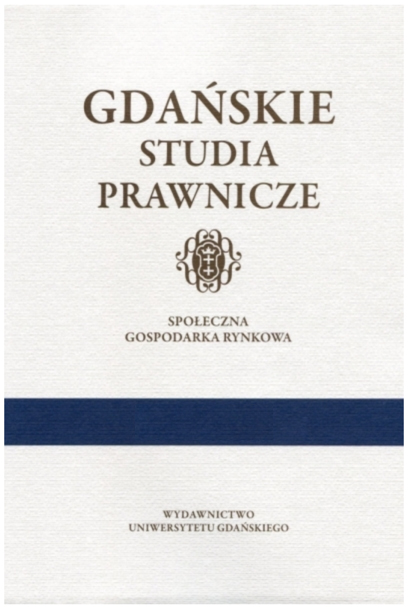Analogia w prawie karnym a ochrona praw człowieka na tle opinii doradczej Trybunału Haskiego w sprawie Wolnego Miasta Gdańska
Analogy in criminal law and the protection of human rights on the background of an advisory opinion of the Hague Court pertaining to the free city of Danzig
Author(s): Krzysztof DrzewickiSubject(s): Criminal Law, Human Rights and Humanitarian Law
Published by: Wydawnictwo Uniwersytetu Gdańskiego
Keywords: human rights; Hague Court; criminal law;
Summary/Abstract: The article is devoted to the question of analogy in criminal law in the context of the protection of human rights. However, appraisal of this question has been made from a historical and narrow perspective of a case study. The case stems from an advisory opinion of the Permanent Court of International Justice in the Hague of 1935 concerning consistency of two decrees with the Constitution of the Free City. Deviating from the principlesnullum crimen sine lege and nulla poena sine lege, the decrees introduced to criminal law and criminal procedure of the Free City a possibility for the application of analogy. Its introduction was said to be justified by a sound social need of combating criminality through implementation of the principle nullum crimen sine poena. By analogy it was meant to cause criminal liability for an act, albeit not provided expressis verbis by criminal law,through the recourse to a criminal provision most nearly to the said act. The Hague Court gave, however, its priority to another philosophy, namely to the necessity of protecting human rights. Since every individual, while performing an act, is unaware that he/she maybe committing a prohibited and punishable act, hence analogy leads to the violation of fundamental human rights guaranteed by the Constitution of the Free City. Consequently,the Hague Court decided that both decrees of 1935 were not consistent with the Constitution. Modern significance of this judgment of the Hague Court is expressed by defining strict conditions on formulating of human rights restrictions in criminal law.The Author assumes that exceeding of admissible limits of excessive interpretation may pave the way for permeation of analogy to criminal law.
Journal: Gdańskie Studia Prawnicze
- Issue Year: 2015
- Issue No: XXXIII
- Page Range: 139-153
- Page Count: 15
- Language: Polish

